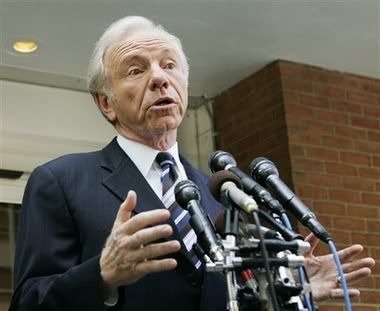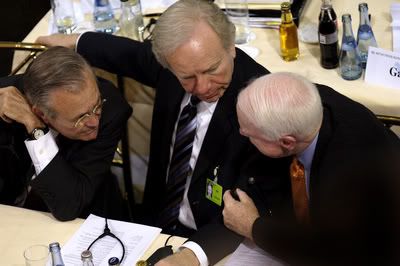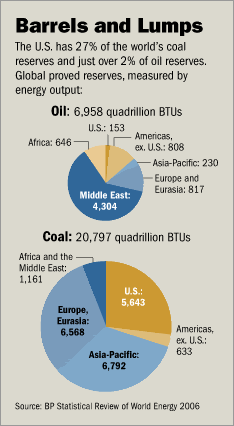[promoted by BooMan, because Psi rocks]

Dr. Victoria Wulsin (D), OH-02 candidate
Last year, the special election held in Ohio’s 2nd District got a ton of national press coverage. After Bush named the previous representative, Rob Portman, to be the U.S. Trade Representative (he has since become the Director of the White House Office of Management and Budget [OMB]), a special election was held just over a year ago for the open seat. In a seat that hasn’t been held by a Democrat for more than 30 years, Iraq veteran and straightshooter Paul Hackett lost by a mere 4% to Jean Schmidt. Although Hackett has since sworn off of running for office, this doesn’t mean that we should be simply write off OH-02. There is a Democratic candidate – Dr. Victoria Wulsin – and she has a good shot at putting Mean Jean Schmidt down for the count.
If one takes a look at Dr. Wulsin’s biography, she has led an admirable life – raising four sons with her husband, a fellow doctor, while working on public health projects in Cincinnati and around the world. In addition, she happens to be a fellow blogger along with the rest of us – she has her own Daily Kos user ID, where she has been posting her latest travails – trying to get Schmidt to agree to a debate – although it seems like the freshman congresswoman and her staffers are perennially out to lunch. However, there hasn’t been much attention paid to this race, despite the encouraging developments that have been coming out over the past few months.
Since we all like numbers, let’s start out with a study done by one of Schmidt’s GOP primary opponents, former Representative Bob McEwen. In it, it shows that only 35% of respondents wanted Schmidt to be re-elected, while 49% wanted a change. This didn’t help McEwen win the primary, but it did show that there was considerable misgiving about the way she had been representing her constituents – or her insensitive comments about Representative John Murtha (D-PA) that set off a national firestorm of criticism. Those earlier numbers were confirmed in a poll in July that showed the two candidates to be tied at 44% support. Here are a few snippets from the poll, which was conducted by Momentum Analysis:
There is more to this race than simply a bad national climate for Republicans. Freshman Congresswoman Jean Schmidt’s repeated missteps during her short tenure have made her a well-known, and unpopular figure. She is net unfavorable (41% favorable, 46% unfavorable), with twice as many having a “very unfavorable” impression (30%) as a “very favorable” impression of her (15%). When we examine elected officials’ mean favorability ratings on a 4-point scale, where 4 means “very favorable” and 1 means “very unfavorable,” Schmidt’s mean score (2.30) makes her more unpopular than every figure tested, except for Governor Taft (mean: 1.84). Indeed, Schmidt is less popular than President Bush (2.48 mean score).
Similarly, Schmidt’s job ratings are even worse than President Bush’s. Only a third give Schmidt positive ratings (33%), while over half (53%) rate her negatively. Over three times as many give her “poor” ratings (27%) as “excellent” ratings (8%). Her mean job rating (2.16) is again lower than that of the President (2.20), as is her net positive-to-net negative ratio (0.6-to-1, compared to 0.7-to-1 for Bush).
It takes a hell of a politician these days to register a lower approval rating than Bush, and to be only above Bob Taft, whose approval statewide is still sitting at a meager 17%, is not saying much. In addition, the poll shows a net difference of -20 in approval ratings (33-53), and more than three times as many people strongly disapprove as those that strongly approve.
Some more notes from the poll also stand out:
Wulsin begins doing a better job of consolidating her partisan base than does Schmidt. Eight in ten (81%) registered Democrats are voting for Wulsin, compared to only two-thirds (68%) of registered Republicans voting for Schmidt. Wulsin garners majority support among those not registered with either party (52% Wulsin, 36% Schmidt). Wulsin also leads in Hamilton County, the largest county in the district (50% Wulsin, 37% Schmidt).
Another way to gauge Schmidt’s vulnerability is what we call the “re-elect question,” which only asks about Schmidt, without any mention of her opponent. Fewer than a third (30%) said they would vote to re-elect Schmidt, while more (34%) said they would vote to replace her. Just as many said they would consider voting for someone else (19%) as are undecided (18%). A 30% re-elect figure is a clear sign of weakness. Our analysis of all 2006 public polling on this question shows Schmidt’s re-elect to be lower than nearly every other incumbent in the country, across offices and party lines. The only Congressional incumbent with a lower re-elect figure than Congresswoman Jean Schmidt is Congressman Don Sherwood (PA-10), who has been accused of choking his 29-year-old mistress.
Wulsin clearly has the backing of the Democratic base, while Schmidt has lost some of her core support. In addition, independents currently split towards the Democratic challenger, even though she has much less name recognition than the incumbent does. And to be only above a noted adulterer – again, not something to crow about. Even though this district leans heavily Republican, and this is an internal poll, it’s hard to dispute the extremely low figures that Schmidt is registering. The numbers show that there isn’t a hell of a lot of enthusiasm out there for Mean Jean.
All polls aside, though, it seems that public relations disasters could be the thing that bring Schmidt down this time around. As I mentioned above, there was the egregious incident on the House floor where she questioned John Murtha’s patriotism. In April, it was also determined that Schmidt lied about her college degrees, along with that all-important endorsement from noted scumbag Tom Tancredo:
A Cincinnati-area congresswoman lied when she claimed to have two college degrees as she campaigned last year in a special election, the Ohio Elections Commission ruled Thursday.
The commission rejected U.S. Rep. Jean Schmidt’s argument of an honest mistake on her campaign Web site last summer that has since been corrected to show she actually holds one bachelor’s degree from the University of Cincinnati.
[…]
And the commission said Schmidt can claim support from U.S. Rep. Steve Chabot, Republican of Cincinnati, but that she was not truthful when claiming to be endorsed by Colorado Rep. Tom Tancredo and the Family Research Council.
This ruling came out 5 days before Schmidt’s primary against McEwen, which he lost after giving up a threat to challenge the vote based on irregularities. Nevertheless, it became another stain on Schmidt’s credibility. Today, we find out that yet another complaint has been filed against Schmidt – and once again, it’s from the right wing.
Republican Rep. Jean Schmidt is fast, capable of running a marathon in 3 hours, 19 minutes, 6 seconds.
At least that’s what a photo on the Ohio congresswoman’s Web site shows.
No way, says a rival who contends that the picture from the 1993 Columbus Marathon is doctored and complained to state election officials. A four-member commission panel ruled Thursday that there was enough evidence to look into the complaint.
[…]
The photo shows Schmidt near the finish line at the marathon with a time clock showing 3:19:06, which would have made her one of the top finishers. But a newspaper list of the top runners does not include Schmidt, said Nathan Noy, who is seeking to run as a write-in candidate against Schmidt.
Noy said he believes the photo may be fake and suggested that Schmidt never even participated in the event. In the photo, Schmidt doesn’t cast a shadow while other runners do.
Sure, it’s over something fairly trivial, but it’s noteworthy in that it’s the second time that an advertisement by an Ohio Republican was doctored (Senator Mike DeWine aired a doctored ad of the burning towers of the World Trade Center). In addition, with Schmidt’s negatives already so high, the last thing she needs is more bad publicity that will continue to peel away at whatever image of integrity she has left. This will serve to benefit Wulsin, particularly if Noy suddenly becomes seen as a viable write-in alternative to Schmidt to the hardcore right wing. Here’s a little snippet from Noy’s very bare website:
Nate is running for Congress because the people of OH-2 deserve to be truthfully represented in
Congress with a voice that shares their Christian, Conservative values.[…]
Nate has the Proper Motivation to Seek Office: He is seeking the office to properly represent the
people of OH-2 with a Christian, Conservative, and Pro-Business voice.
Sounds like a winner to me. He decries Schmidt’s low poll numbers and her standing as the ‘433rd most powerful member of Congress’ (even though he might rank even lower if he won), and he criticizes Wulsin for being a liberal, with his main evidence being that she supports gay rights. To be honest, I have no idea how much support this guy actually has, or if he’s even considered serious by either Schmidt or Wulsin. Regardless, one can only think that it will serve to benefit our candidate by reinforcing Schmidt’s image as a liar, or by stripping votes away from Schmidt to Noy (who has an easily-spelled name to write in), thus possibly leading to a split in the vote of the conservative majority.
Although the Cook Political Report still lists this race as Likely Republican as of last week, I think we can pick up this seat. We have an energetic candidate in Victoria Wulsin and an incumbent who is highly disliked in a blood-red district. This may still be a longshot, but wasn’t the Connecticut Senate race supposed to be a lost cause as well? Let’s help Dr. Wulsin dump one of the worst members of Congress this fall.
(cross-posted at Deny My Freedom and Daily Kos)
[Update]: Over at Daily Kos, Margot pointed out that Dr. Wulsin has great health care ideas. If you trek on over to her issues page, you’ll see that indeed, health care is probably covered the most in-depth – makes sense, given that she has been a lifelong doctor. Here’s a basic summary of what she believes in with regards to improving our broken health care system:
* Modernize our healthcare system so that Americans receive higher quality care at lower cost.
* Invest in prevention so we stop sickness and disease before they start, saving us lives and money.
* Make sure patients are our focus, and give them access to complete information, more choice, and better care.
* Guarantee universal health coverage for all children.
* Following a model proven to work in Montana, allow small businesses to join together in purchasing pools to purchase health insurance at lower costs.
* Reform medical malpractice litigation, to better differentiate between patients who are victims of misfortune and those who are victims of physician error.
* Drive down the cost of prescription drugs by allowing re-importation of US-approved drugs from Canada and allowing Medicare to negotiate with drug companies for lower prices just as HMO’s do.
* Increase funding for public health programs to increase our preparedness in the event of a natural or bio-terrorist emergency.
* Give all Americans access to the same health coverage that members of Congress enjoy, the choice of private health plans from the Federal Employee Health Benefits (FEHB) program.












